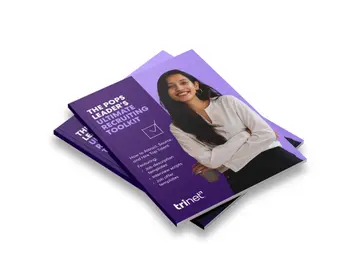
Just as job seekers look at employers on social media when looking for a new job, employers are doing social media background checks when assessing applicants. According to a recent survey, 90% of employers use social media to research job candidates, and another study shows that job seekers under 35 are finding their jobs through social media. Almost every modern job seeker has a social media presence, and employers are looking at them. Your competitors are most likely doing online social research about candidates, so if you aren’t, you are going to be at a disadvantage in the talent market. With social media users expected to top 3 billion by 2022, employers almost certainly must add social media searches to their recruiting process. But if you are a recruiter or a hiring manager, which social media sites should you check when vetting candidates? Employers, recruiters, and hiring managers can gain insight into candidates from their social media activity to corroborate resumes, see what organizations candidates follow, and learn about personal attributes from interests and hobbies. However, the Society for Human Resource Management (SHRM) recommends employers use caution when checking candidates’ social media. The information found in social search should not be used to unlawfully discriminate, and it’s a good idea to have some guidelines for social media background checks.
The information found in social search should not be used to unlawfully discriminate, and it’s a good idea to have some guidelines for social media background checks.
Facebook’s 2021 2.85 billion active worldwide users make it the top social media platform, and employers and recruiters should be interested in candidates’ Facebook activity. With the average time of 33 minutes spent on the site per day, you’ll want to know if candidates are using Facebook to support their favorite charities, cheer sports teams, and showcase their families. However, you'll also want to note if they are using Facebook to post inappropriate photos, make discriminatory comments, bad-mouth previous employers, or engage in other unsavory activity. Employers want to find evidence of a candidate’s professional qualifications, outstanding communication skills, creativity, and professionalism, even on social media. When there is nothing but alarming content on a Facebook profile, the candidate and employer have a lot more to overcome to get to a comfortable place in the recruiting process. Interestingly, a CareerBuilder survey showed that employers are suspicious of candidates who lacked a social media presence. With the billions of active Facebook users, employers and candidates alike will find it a very useful platform for exploring whether candidate interests, experience, and career goals fit with company culture and open roles. Employers and recruiters can learn a lot from a single photo on Facebook, including gender, race, ethnicity, age, disability, marital status, and pregnancy. These are things to be cautious about and not let influence your hiring decisions.
With almost 800 million members worldwide, LinkedIn is the largest professional social network for job seekers and employers. This is the place for job seekers to highlight their skills and experience, and for employers to promote their employer brand and company culture. Everyone is presenting themselves in the best light possible and networking for professional relationships. Employers want good reputations and job seekers want recommendations and commendations. When looking at candidates on LinkedIn, recruiters and employers will obviously be looking at the quality of presentation in the profiles. Spelling, grammar, orderly and logical organization of employment, education, and work experience information are important. The quality of the headshot will tell a lot about the candidate’s professional or casual approach to their online image.
Red flags to look out for include sloppy presentation such as spelling and grammar errors, unprofessional profile photos, and vague language in describing skills and experience.
From resume and work experience information, you can get a good idea of the size and type of companies the candidate worked for, how loyal the candidate is by the length of time in a job, and what kind of career growth the candidate has experienced or lacks. Red flags to look out for include sloppy presentation such as spelling and grammar errors, unprofessional profile photos, and vague language in describing skills and experience.
Business News Daily contributor Saige Driver cites a 2018 CareerBuilder survey showing that employers are using social media not only to check on candidates, but also on current employees. Professionals like Dark Horse PR founder DeeAnn Sims say reviewing a candidate's social media gives employers and recruiters a better understanding of their personality than just the resume. Matt Erhard at Summit Search Group says most employers use Facebook, LinkedIn, and Twitter to check on candidates. He says he looks at LinkedIn for relevant career information and other platforms to get a more personal picture of candidates. Twitter is a microblogging and social networking site that lets users send out condensed messages called tweets. Restricted to 280 characters or less, users have to make their point quickly in just a few words. People use Twitter to scan for activities of interest to them, find and share useful content, follow people and organizations of interest, promote their businesses, and support causes they like. Celebrities use Twitter to create closer connections to fans. Employers use Twitter to promote their organizations, make announcements, and even recruit employees. They can also look at candidates on Twitter to find out about their interests, who they follow, and how they communicate via tweets.
Don’t limit your searches to just Facebook, LinkedIn, and Twitter
Employers and recruiters use social media sites to get a more complete picture of candidates than just what’s on a resume or cover letter and to avoid bad hires. Social media recruiting is an effective avenue for sourcing candidates, building candidate relationships, and extending the recruiting process online. Although the top social media sites to check candidates are Facebook, LinkedIn, and Twitter, employers can look at candidate activity on Instagram, YouTube, TikTok, WhatsApp, and other social media platforms as well. One very beneficial aspect of social media checks on candidates is awareness of candidates with negative outlooks. If candidate posts are overwhelmingly negative, especially if any discriminatory posting or commentary is seen, no longer pursuing that candidate can avoid bringing that negativity into the workplace. In short, look for skills and cultural fit and watch for clear signs of negativity on candidates’ social media. Have questions about researching social media profiles as part of your recruiting efforts or empowering your employees to do their best work? TriNet can help.
This communication is for informational purposes only; it is not legal, tax or accounting advice; and is not an offer to sell, buy or procure insurance.
This post may contain hyperlinks to websites operated by parties other than TriNet. Such hyperlinks are provided for reference only. TriNet does not control such web sites and is not responsible for their content. Inclusion of such hyperlinks on TriNet.com does not necessarily imply any endorsement of the material on such websites or association with their operators.






